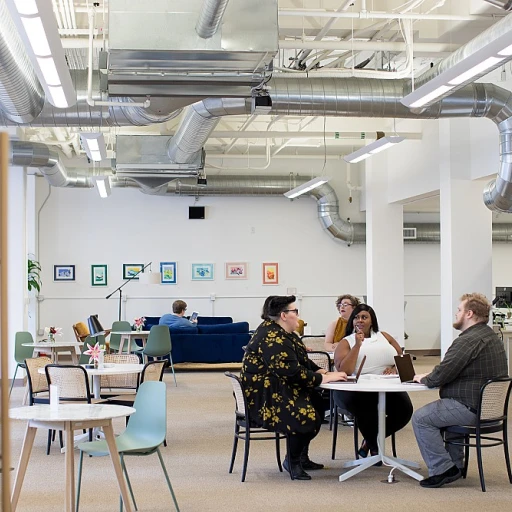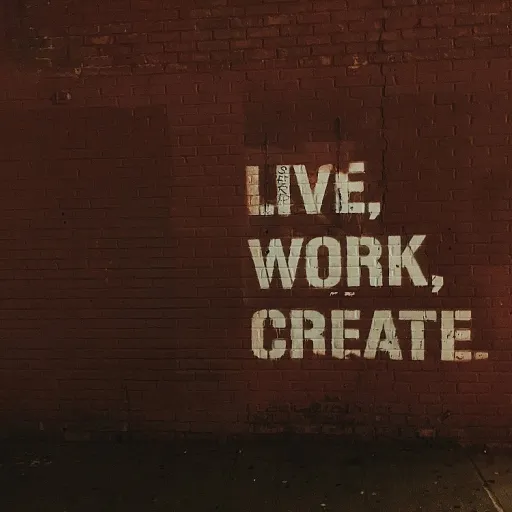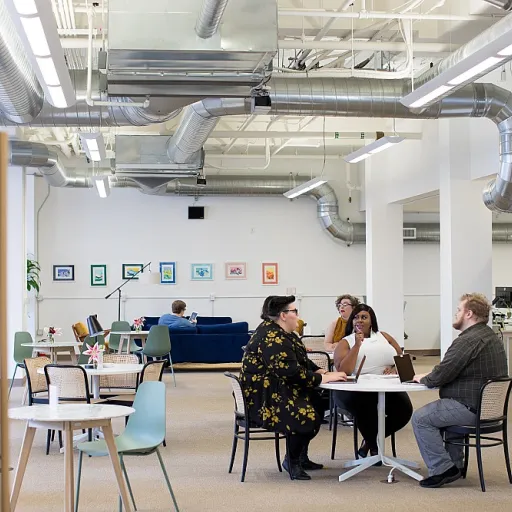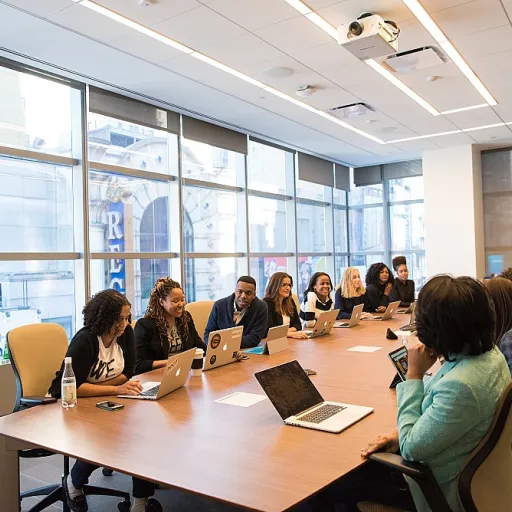
Understanding Candidate Experience
Appreciating Candidates Alongside Employees
Understanding candidate experience is crucial as it's not just about hiring talent; it's about creating an environment where potential employees feel valued from the onset. Much like employee appreciation days that celebrate staff contributions, the candidate experience sets the tone for future engagement and retention in your work environment. Just as companies organize events with creative food ideas to appreciate their teams, organizations should also focus on making the recruitment process engaging for prospective hires. Consider the impact of these efforts: a well-planned appreciation day featuring diverse meal options from food trucks or offering unique gift ideas like gift cards can elevate employee morale. Similarly, paying attention to the candidate journey could ensure that individuals perceive the company as attentive to both its current and potential employees' experiences. The approach should be holistic. In the same way that remote employees are considered during meal planning by offering healthy snacks or accounting for dietary restrictions, recruiters need to accommodate remote applicants by ensuring a seamless virtual application process. It’s about making candidates feel as appreciated as your valued staff. To explore how companies can achieve this, you may find insights on celebrating appreciation days valuable. For instance, the principles outlined in celebrating the unsung heroes - office manager appreciation day can be applied to enhance your recruitment strategy and foster a welcoming company culture right from the hiring process.The Role of Communication
Effective Engagement through Clear Channels
Communication plays a crucial role in shaping the candidate experience. Efficient communication establishes clarity and trust, paving the way for a smooth recruitment journey. Organizations must ensure their message is not only timely but also meaningful. When teams convey expectations clearly and consistently, it sets the stage for candidates to feel valued, much like employees during appreciation events where communication is key to understanding dietary restrictions and organizing creative food ideas. It’s vital for candidates to know what to expect in interviews, just as employees expect information during staff appreciation events. In a world increasingly embracing remote work, leveraging technology is essential to maintain open lines of communication with candidates. However, it’s the personal touch in communication that often makes candidates feel like they are part of the company's culture and values. Offering opportunities for questions and feedback at every stage, similar to an appreciation day where management engages with employees and explores their feelings, improves transparency. Candidates appreciate an outline of the company’s expectations as much as employees appreciate being informed about team lunch details or receiving appreciation gifts. Moreover, well-practiced communication skills are essential for maintaining a positive employer brand. This is similar to enhancing the employee experience through thoughtful gift ideas like food trucks or gift cards, ensuring each interaction is meaningful and appreciated by the candidates. For further insights on how communication impacts employer branding, you can delve deeper into the topic of the impact of employer branding on attracting and retaining talent.Technology's Impact on Candidate Experience
The Influence of Technology on Recruitment Dynamics
In today's fast-paced recruitment landscape, technology plays a pivotal role in shaping the candidate experience. From the initial application to the final offer, technology streamlines processes, making them more efficient and candidate-friendly. But how exactly does it impact the overall experience?
Firstly, the use of Applicant Tracking Systems (ATS) has revolutionized how companies manage applications. These systems not only help in sorting and filtering candidates but also ensure timely communication, which is crucial for maintaining a positive candidate experience. Effective communication, as previously discussed, is key to making candidates feel valued and appreciated.
Moreover, technology facilitates virtual interviews, which have become increasingly common, especially for remote employees. This not only saves time and resources but also allows candidates to participate from the comfort of their own space, reducing stress and making them feel more at ease. It's important for companies to ensure that their virtual interview platforms are user-friendly and accessible to all candidates, including those with dietary restrictions or other needs.
Another significant aspect is the use of AI and machine learning in recruitment. These technologies can help personalize the recruitment process, offering tailored job recommendations and feedback. Personalization, as we know, enhances the candidate's journey, making them feel more connected to the company and its values.
However, it's crucial to recognize the potential pitfalls of relying too heavily on technology. Issues such as ageism in the workplace can inadvertently be perpetuated by biased algorithms. Companies must be vigilant and ensure their tech solutions are inclusive and fair. For more insights on this, you can explore real-world examples of ageism in the workplace.
In conclusion, while technology undeniably enhances the candidate experience, it must be implemented thoughtfully and inclusively. By doing so, companies can create a work environment where candidates feel valued and appreciated, ultimately boosting employee morale and retention.
Personalization in Recruitment
Making Recruitment Personal
In today's recruitment landscape, personalization plays a pivotal role in enhancing the candidate experience. This aspect goes beyond simply addressing candidates by their names during interviews or communications. It's about tailoring the entire recruitment process to meet the unique preferences and needs of prospective employees. Personalization can be implemented in several ways:- Customized Communication: It is important for candidates to feel like they are more than just a number in a stack of resumes. This can be achieved through personalized emails and follow-ups, which acknowledge their specific skills and interests. Tailoring the content of your messages can leave a lasting impression, similar to how employee appreciation events, like team lunches or gifts, are curated to make team members feel valued.
- Individualized Interview Experiences: Accommodating dietary restrictions or providing options like healthy snacks during in-person interviews can demonstrate thoughtfulness. For virtual interviews, offering flexible scheduling for remote employees can show respect for their time and circumstances — much like ensuring employee appreciation days are inclusive and considerate of all staff members' needs.
- Specialized Job Previews: Allow candidates to experience a day in the life at your company. This can be achieved by organizing virtual tours or interactions with potential team members. Similar to how companies offer appreciation gifts like gift cards or ice cream, offering a taste of workplace culture can increase the interest of prospective employees.
Feedback and Continuous Improvement
Constructive Candidate Feedback: A Pathway to Meaningful Improvement
The journey to enhancing candidate experience involves not just implementing new practices but also constantly refining them. This iterative process starts with gathering, analyzing, and acting on candidate feedback—an indispensable component for companies aiming to foster a positive recruitment atmosphere. Much like how celebrating Employee Appreciation Day with creative food ideas can boost morale and make employees feel valued, actively listening and responding to candidate feedback helps companies to create a more inviting work environment. Collecting feedback allows organizations to appreciate the insights candidates share, similar to how staff appreciation events recognize employee contributions. To make sure feedback collection is comprehensive and inclusive, companies should:- Implement Surveys: Post-interview surveys are an effective tool for gathering candidate opinions on their experience. These surveys should include questions that cover communication effectiveness, respect for time, and perception of the company culture.
- Address Diversity and Inclusivity: Just as nutritional meal options consider dietary restrictions, candidate feedback mechanisms should be attuned to diverse candidates’ needs by including questions that explore inclusivity during the recruitment process.
- Immediate Follow-up: Promptly addressing feedback, much like how companies respond to dietary preferences or appreciation gifts during staff events, conveys that candidate opinions truly matter.













